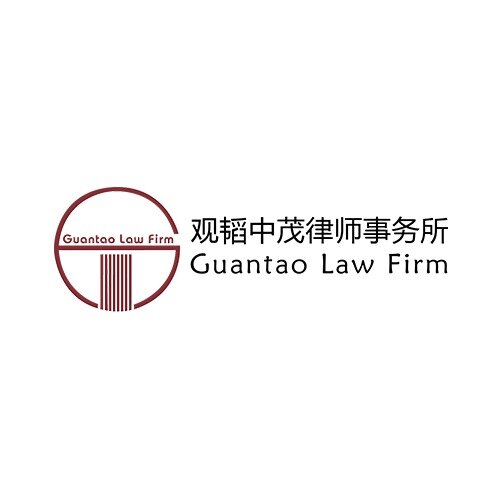Best Creditor Lawyers in Beijing
Share your needs with us, get contacted by law firms.
Free. Takes 2 min.
List of the best lawyers in Beijing, China
About Creditor Law in Beijing, China
Creditor law in Beijing, China, refers to the body of legal statutes and regulations that govern the rights and obligations of creditors in the context of lending and collecting debts. This branch of law covers various scenarios such as personal lending, corporate finance, secured transactions, and bankruptcy. In Beijing, creditor laws are influenced by national laws and local regulations that provide the framework for enforcement actions, dispute resolution, and the overall treatment of financial obligations.
Why You May Need a Lawyer
Common situations where you may require legal help include the enforcement of loan agreements, handling of bad debt situations, restructuring of debts within insolvency proceedings, navigating the complexities of cross-border transactions, and dispute resolution involving secured and unsecured creditors. A lawyer can also be invaluable when it comes to protecting your interests in the event of a debtor’s bankruptcy or insolvency and ensuring compliance with both local and international creditor law.
Local Laws Overview
Key aspects of local laws that are particularly relevant to creditor law in Beijing include the People’s Republic of China Contract Law, which governs the formation and execution of contracts, including lending agreements. The Security Law and the Enterprise Bankruptcy Law are also critical, as they outline the treatment of secured transactions and outline the rights and priorities of creditors in bankruptcy cases, respectively. Specific local guidelines in Beijing may further detail court procedures and enforcement practices.
Frequently Asked Questions
What legal actions can creditors take if a debtor fails to pay?
Creditors may file a lawsuit to obtain a judgment against a debtor, seek the seizure and sale of the debtor's property, or pursue other forms of debt enforcement such as wage garnishment or bank account freezing if permissible under local law.
How does bankruptcy law operate in Beijing?
Bankruptcy law follows national laws customized with local regulations. It allows financially insolvent debtors to restructure or discharge their debts. Creditors may file bankruptcy petitions against a debtor or participate in bankruptcy proceedings to recover debts.
Are there specific statutes of limitations for debt collection in Beijing?
Yes, the statute of limitations for contractual obligations is generally governed by national law, which typically imposes a limitation period after which legal actions cannot be initiated.
How are secured creditors prioritized in Beijing?
Secured creditors are usually given priority over unsecured creditors in the repayment of debts, especially in insolvency or bankruptcy proceedings where assets are liquidated to satisfy claims.
Can foreign creditors enforce debts in Beijing?
Foreign creditors have the right to enforce debts in Beijing, subject to the principles of reciprocity and any relevant international treaties or agreements that China is part of.
What resources are available to creditors for debt collection?
Creditors can utilize legal services, collection agencies, and court procedures to collect debts. They can also leverage mediation and arbitration to resolve disputes.
Can creditors reach an agreement with debtors outside court?
Yes, it's often encouraged to reach a settlement or restructuring agreement outside of court to minimize costs and expedite resolution.
What are the implications of the Personal Information Protection Law on debt collection?
The Personal Information Protection Law restricts the use of personal data during debt collection, and creditors must ensure compliance to avoid penalties.
How can a creditor prove a debt is owed in Beijing’s courts?
Documentation such as contracts, invoices, receipts, and correspondence can be used to prove a debt is owed. Testimonies and expert witness accounts may also be applicable.
Are there any local customs or practices that creditors must consider?
Understanding local negotiation and dispute resolution practices is important as they may differ significantly from those in other jurisdictions.
Additional Resources
Resources like the Beijing Higher People's Court can provide guidance on legal procedures. The China Banking and Insurance Regulatory Commission (CBIRC) and the China Securities Regulatory Commission (CSRC) are also useful resources for regulations pertaining to financial transactions. Creditors can also seek assistance from professional legal associations in Beijing.
Next Steps
If you need legal assistance as a creditor, consider consulting with a local lawyer specialized in creditor law. They can provide tailored advice based on your situation and represent you in legal proceedings. Additionally, it is important to gather all necessary documentation and evidence related to the claim before seeking legal counsel.
Lawzana helps you find the best lawyers and law firms in Beijing through a curated and pre-screened list of qualified legal professionals. Our platform offers rankings and detailed profiles of attorneys and law firms, allowing you to compare based on practice areas, including Creditor, experience, and client feedback.
Each profile includes a description of the firm's areas of practice, client reviews, team members and partners, year of establishment, spoken languages, office locations, contact information, social media presence, and any published articles or resources. Most firms on our platform speak English and are experienced in both local and international legal matters.
Get a quote from top-rated law firms in Beijing, China — quickly, securely, and without unnecessary hassle.
Disclaimer:
The information provided on this page is for general informational purposes only and does not constitute legal advice. While we strive to ensure the accuracy and relevance of the content, legal information may change over time, and interpretations of the law can vary. You should always consult with a qualified legal professional for advice specific to your situation.
We disclaim all liability for actions taken or not taken based on the content of this page. If you believe any information is incorrect or outdated, please contact us, and we will review and update it where appropriate.













